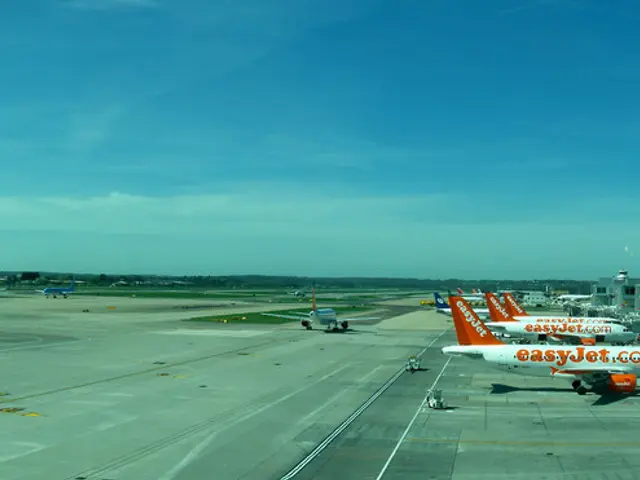Disruption of the Hamburg-Berlin route for improved alternate transportation arrangements - Proposals Already Put Forward by the Commission
German States Urge Improved Rail Replacement Planning for Hamburg-Berlin Renovations
Seven federal states in Germany have expressed concern about the organization of rail replacement traffic during the comprehensive renovation of the Hamburg-Berlin long-distance route, which is due to start in just a few months. Although a comprehensive traffic concept has been developed by Deutsche Bahn (DB), the states are demanding better guarantees for reliable funding, sufficient freight capacity, and coordination of alternative services to account for the nine-month full closure of the route.
In a letter addressed to Federal Minister of Transport Patrick Schnieder (CDU), the states of Berlin, Brandenburg, Hamburg, Mecklenburg-Vorpommern, Lower Saxony, Saxony-Anhalt, and Schleswig-Holstein have convinced that the rail replacement traffic during the closure must be better organized. As of now, there is still no agreement on some crucial issues agreed in previous discussions between the federal government, states, and DB.
The letter, dated May 19, notes that during the total closure, DB must provide appropriate replacement transport services for all affected municipalities and regions along the impacted routes. Furthermore, both road and rail replacement traffic must be sufficiently funded and have adequate capacity for freight traffic on detour routes.
Scheduled for an unprecedented nine-month closure between August 2025 and April 2026, the Hamburg-Berlin section is one of the most significant direct connections, with around 230 trains and 30,000 passengers daily. Passengers will face a longer travel time of 45 minutes due to rerouting via Stendal, Uelzen, and Salzwedel in long-distance traffic. In regional traffic, some Regio lines will ensure fast connections to Berlin and Hamburg, with missing stops covered by buses, albeit with significantly longer travel times.
DB acknowledges that passengers will remain mobile throughout the renovation, both in regional and long-distance traffic. Over 170 buses are part of the replacement service for canceled train connections, with the transport associations ordering the bus lines within the responsible transport associations in the states. Nevertheless, Brandenburg's Minister of Transport Detlef Tabbert (BSW) expressed the need for clear assurances from the federal government for reliable funding of replacement traffic and infrastructure investments. The states also advocate for the establishment of a "corridor committee" involving all relevant actors to ensure mobility for daily commuters and businesses during the construction period.
While DB continues to develop the comprehensive renovation plan, the concerned states aim for clear, well-coordinated, and reliable alternatives to minimize disruption and preserve public trust throughout the extensive renovation project.
- The states involved in the letter, including Brandenburg's Minister of Transport, have emphasized the necessity of secure financing for alternative transportation services, such as buses and rail replacement traffic, during the Hamburg-Berlin long-distance route renovation.
- To ensure smooth industry operation, the states request adequate freight capacity on detour routes and cooperation between DB and other stakeholders to manage transportation services during the nine-month full closure, with a focus on the mining, steel, and finance sectors.








